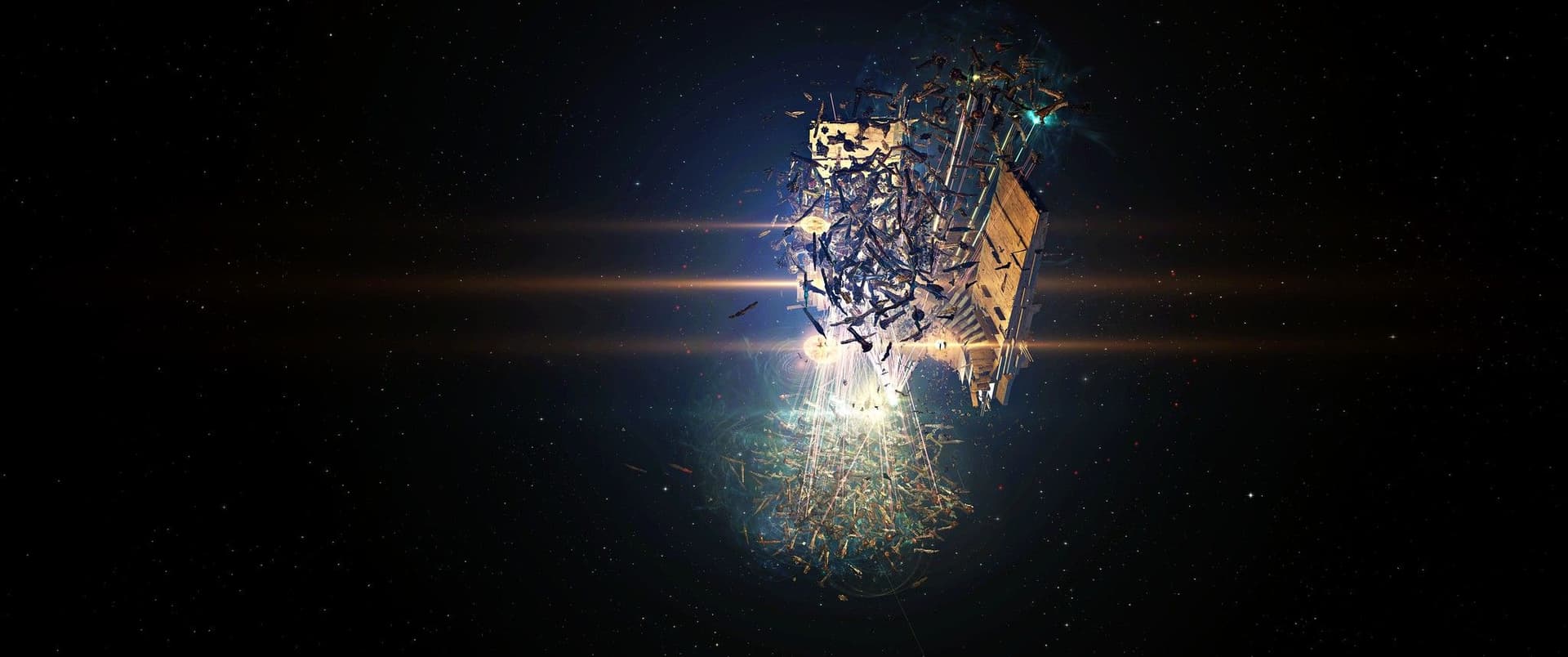Between Skill Points, skill planners, skill training, skill books, skill multipliers, skill injectors, and more, it’s easy to get your wires tangled. To avoid a short circuit, we’ve consulted the experts and created this dedicated, beginner-friendly EVE Online skills guide to clear everything up for new, intermediate, Alpha, and Omega players alike.
That’s no exaggeration. This EVE skills guide was created by some of the most experienced and knowledgeable players in the game. They submitted their expertise in response to our Just rewards, which pay cash prizes for sharing EVE content and knowhow. So in more ways than one, their skills have paid the bills.
We’ve broken this guide into two parts. In the first we explain what EVE Online skills are, how Skill Points work and are acquired, and all of the related in-game consumables. In the second part, we explain skill plans and recommend skill priorities for differing playstyles, account types, and experience levels. Let’s go!
Part one: EVE Online skills explained
“Skills are the method for vertical progression within EVE Online. They unlock ships, drones, modules, weapons, ammunition, implants, drugs, and so much more.” - Sumfin7
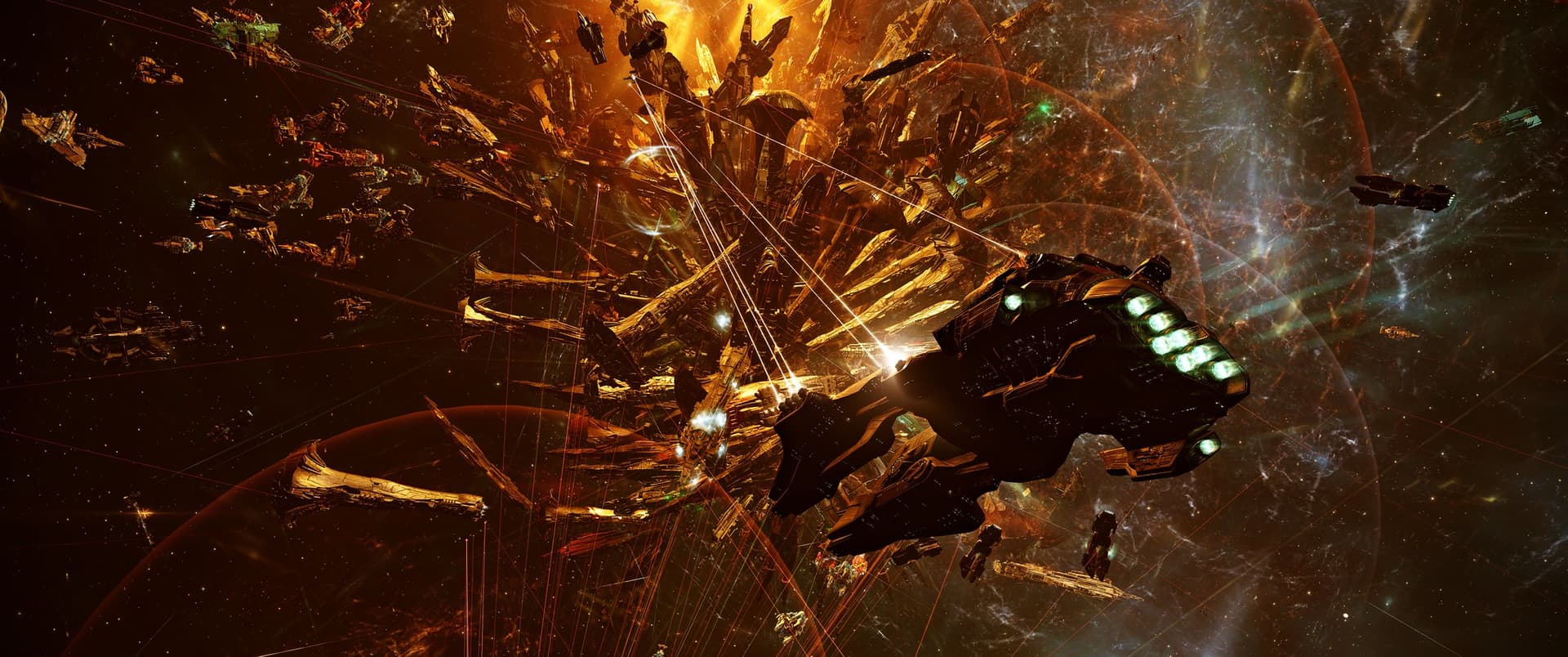

It would be an understatement to say that skills are important. yan57436 describes them as “the basis of the game”. Luka Zaharin describes them as “one of the core elements of EVE Online”. They are, however, ‘sophisticated’. Let’s simplify them:
Skills determine your characters’ abilities, in other words: what you're capable of and how capable of it you are. That includes your ability to fly ships, equip modules, mine ore, and a lot more. Benjamin Franklin famously quipped that the only two constants in life are death and taxes. Well EVE Online skills determine how quickly you die, how much tax you pay, and all of a pilot’s life in between.
Apart from starter skills, you need to unlock a skill’s training via the acquisition of the relevant skill book before you can learn it. Skill books can be purchased via School stations, earned through Loyalty Point stores in NPC corps, or discovered in exploration sites.
There are approximately 500 skills split between 23 categories covering every aspect of EVE gameplay. Training them all to their maximum level would take decades of play (we’re not exaggerating; it’s been calculated). But we’re getting ahead of ourselves (over 24 years ahead of ourselves).
EVE Online Skill Points (SP): what do they do and how do they relate to attributes?
“Skill Points (SP) are the measure of your progress for each specific skill in the game. Each skill has an SP requirement to reach different levels (‘I’ to ‘V’). You gain SP passively over time or by using items such as skill injectors or event bonuses.” - JHenckes
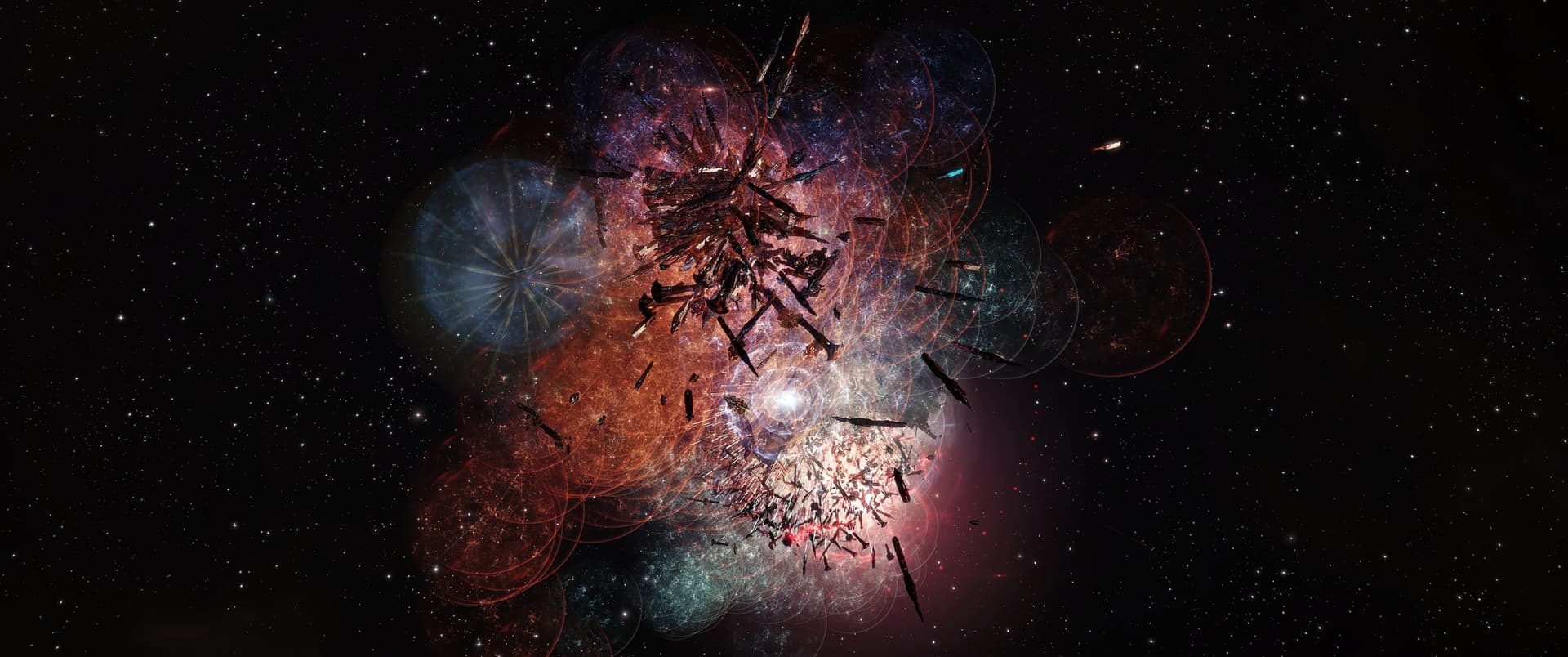

Before we can fully understand Skill Points, we need to understand a less-discussed part of EVE Online: attributes. Think of these like Ability Scores in D&D (other TTRPGs are available); they determine how efficiently you learn categories of skills. We’ll pass to Sumfin7 for an explainer:
“Every character has five attributes that determine how many Skill Points are acquired per hour: Intelligence, Willpower, Perception, Memory, and Charisma. Each skill uses two attributes: a primary attribute, which has the larger impact, and a secondary attribute, which contributes half as much. Many different categories of skill can use the same attributes. For example, Spaceship Command, Gunnery, and Missiles all primarily use Perception and secondarily Willpower.”
It’s worth noting that this is all attributes do. So apart from neural remapping, which we’ll touch on shortly, don’t over-concern yourself with them. If you’re a new player, wondering which attributes to favour, this is a helpful rough guide from EVE University:
“Perception and Willpower are very important for combat pilots since they help you train skills that let you use better ships and weapons, and use your ships and weapons better.
“Memory and Intelligence are very important for industrialists, and still quite important for combat pilots (they are useful for drone skills, fitting skills, and tanking skills).
“Charisma is important for traders and mission-runners, and anyone who's training in Leadership skills.”
Unsurprisingly, it gets much more complex than that. For a detailed, formulaic breakdown of the relationship between attributes, skills, and SP, check out that EVE Uni link above.
EVE Online Skill Points (SP): how do I acquire them?
SP can be earned passively via skill training or actively via skill injectors and other means.
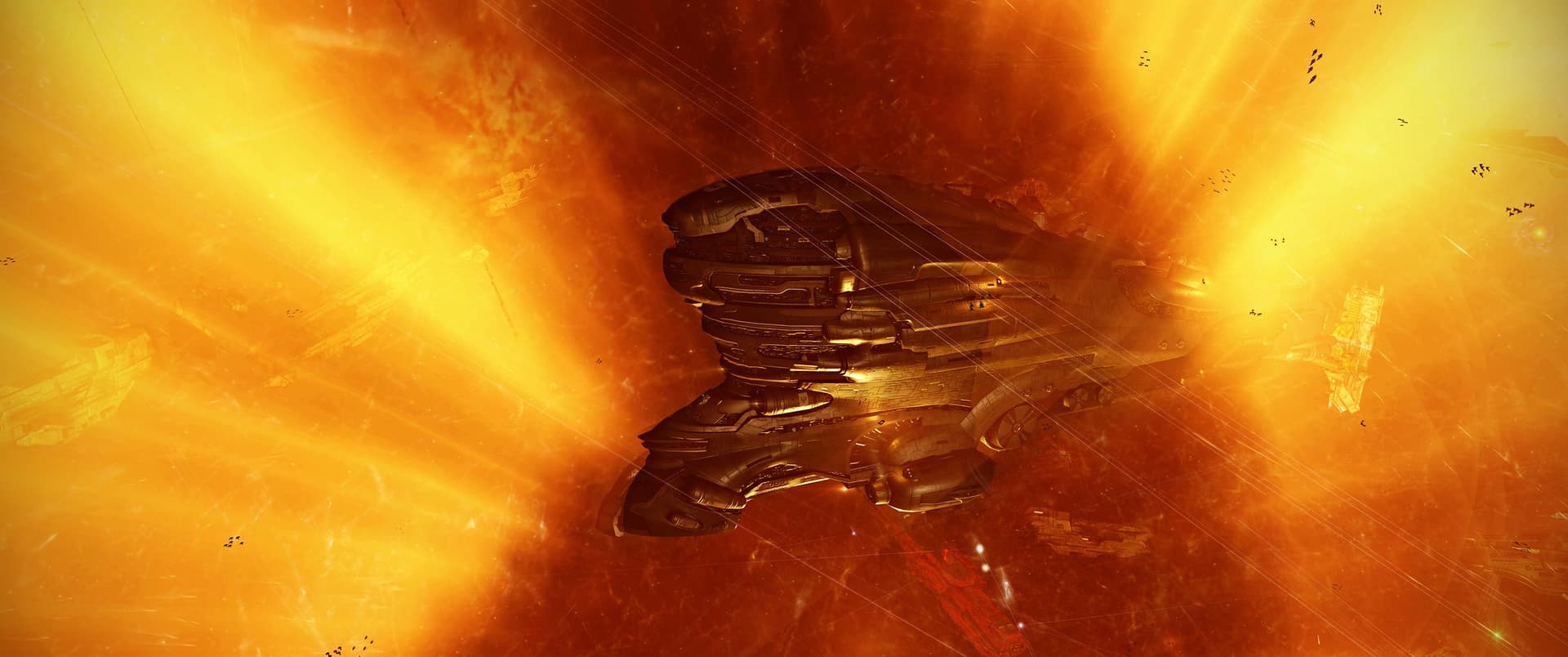

Passive skill training
“Consider SP as the game’s ‘progression currency’; it passively accumulates as you train the skills in your training queue.” - Yan
In this sense, SP is a measure of time invested into learning a particular skill. It accumulates regardless of whether the player is on or offline. Various factors influence how fast SP is accrued and therefore how fast a skill is trained: the attributes the player has chosen, whether their character is an Alpha or Omega clone, and the level (‘I’ to ‘V’) of the skill being trained. The latter is formally referred to as a training time multiplier and informally as a skill multiplier.
“Each skill has a time modifier that determines how long it will take to train. The multiplier increases with more complex skills, making their training much more time-consuming.” - JHenckes.
Skill Points acquired through training are automatically applied to the skill at the top of the queue.
How to optimise your passive skill training
Passive skill training is the New Eden equivalent of listening to Les Misérables audiobooks while you sleep until you wake up speaking French. For those who aren’t content continually waiting one day more, Sumfin7 recommends some handy mind-hacks for passive skill training optimisation. When we say ‘mind-hack’, we’re not talking Buzzfeed pop-psychology, we’re being literal:
“The first method is through neural remapping. Neural remaps allow you to change your attributes in order to optimise your skill training. For example, if you wanted to train Spaceship Command and Gunnery skills, then you’d max out Perception and place any remaining attributes into Willpower.”
Be warned: standard neural remaps can only be done once per year. There are also bonus remaps, which can be used at any time but do not replenish. Back to Sumfin7:
“The second method is the use of cerebral accelerators. Cerebral accelerators increase training speed by increasing attributes for a limited amount of time, ranging from one to eight days. Accelerators can be acquired on the market, from special events, in the New Eden Store, or from the EVE Store.”
Cerebral accelerators, also known as skill boosters, do not stack. There are standard, advanced, prototype, and event-specific versions. Some provide additional bonuses, and they all persist through clone death. Here’s Sumfin7 once more, explaining a related optimisation:
“The third method is through training implants, the name given to all implants that fit into implant slots one to five. Each implant increases a single attribute by one to five points depending on the grade of the implant.”
The second and third methods can complement one another; some implants increase the effectiveness of cerebral accelerators. The Biology skill does too, granting 20% booster duration increase for each level trained.
Active skill training
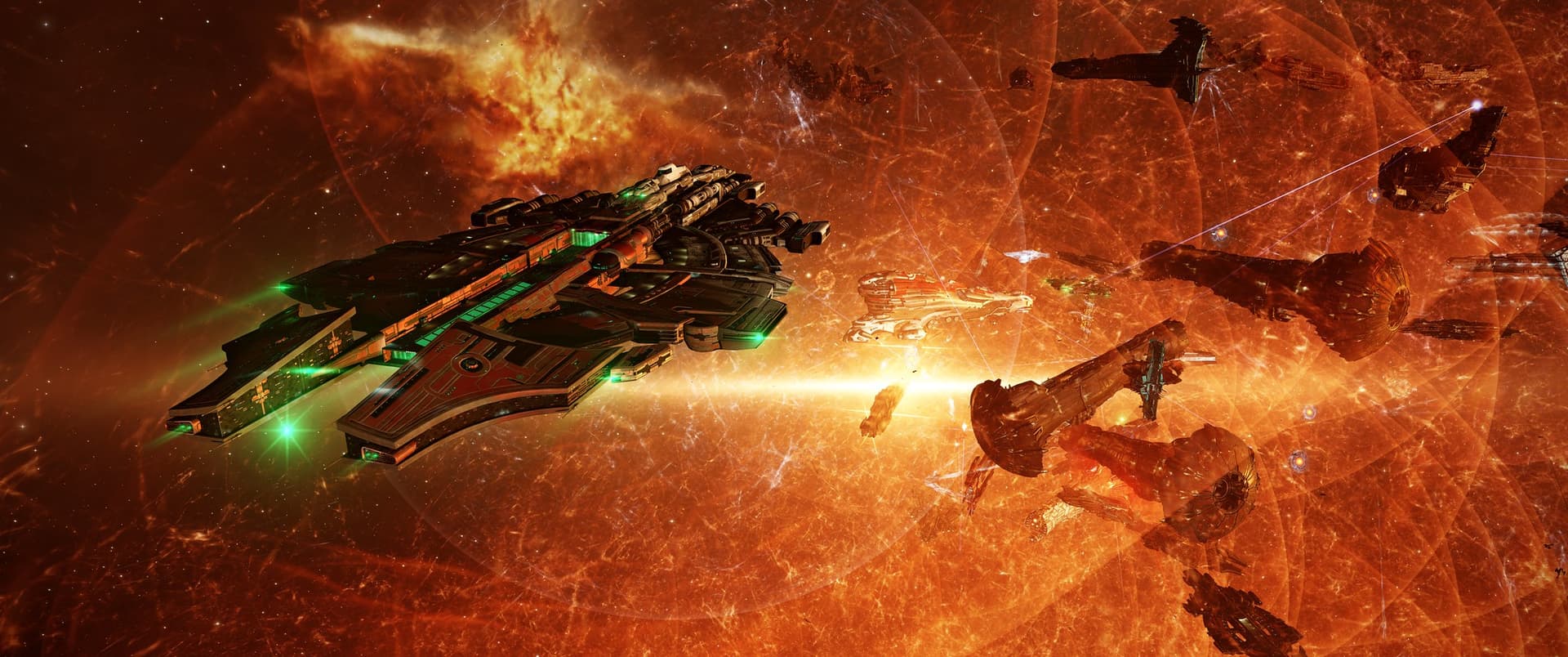

For active learners, there are other ways to acquire SP in EVE Online, the simplest and most common of which is with skill injectors. These tradeable consumables instantly add SP to any skill the player chooses, speeding up its learning. Heed this tip from mypets: “players with fewer than five million SP benefit most. Above that, the gain per injector decreases.”
Where do skill extractors fit in? Skills are permanent and accumulative. The only way you can lose a skill is intentionally, by using a skill extractor. Once used, the extractor generates an injector, allowing you to reallocate your SP (or sell it).
There are alternate active routes to gaining SP. Back to Sumfin7:
“The AIR Career program offers up to 750,000 free Skill Points that can be applied to any skills you choose. The monthly reward track also offers up to 225,000 SP for Omega accounts and 75,000 for Alphas, and that’s in addition to the 10,000 SP available every day for completing at least two daily challenges. Periodically, there are also login rewards that offer SP.”
New players can also earn a million SP by using another player’s referral code. Most EVE Online creators share their referral codes underneath their videos, and if you’re looking for one, we have many creators on Just EVE who we’re sure would be happy to share theirs. Just ask.
If you’re a brand-new player, check out these week one EVE Online survival tips.
Part two: choosing the right skills in EVE Online
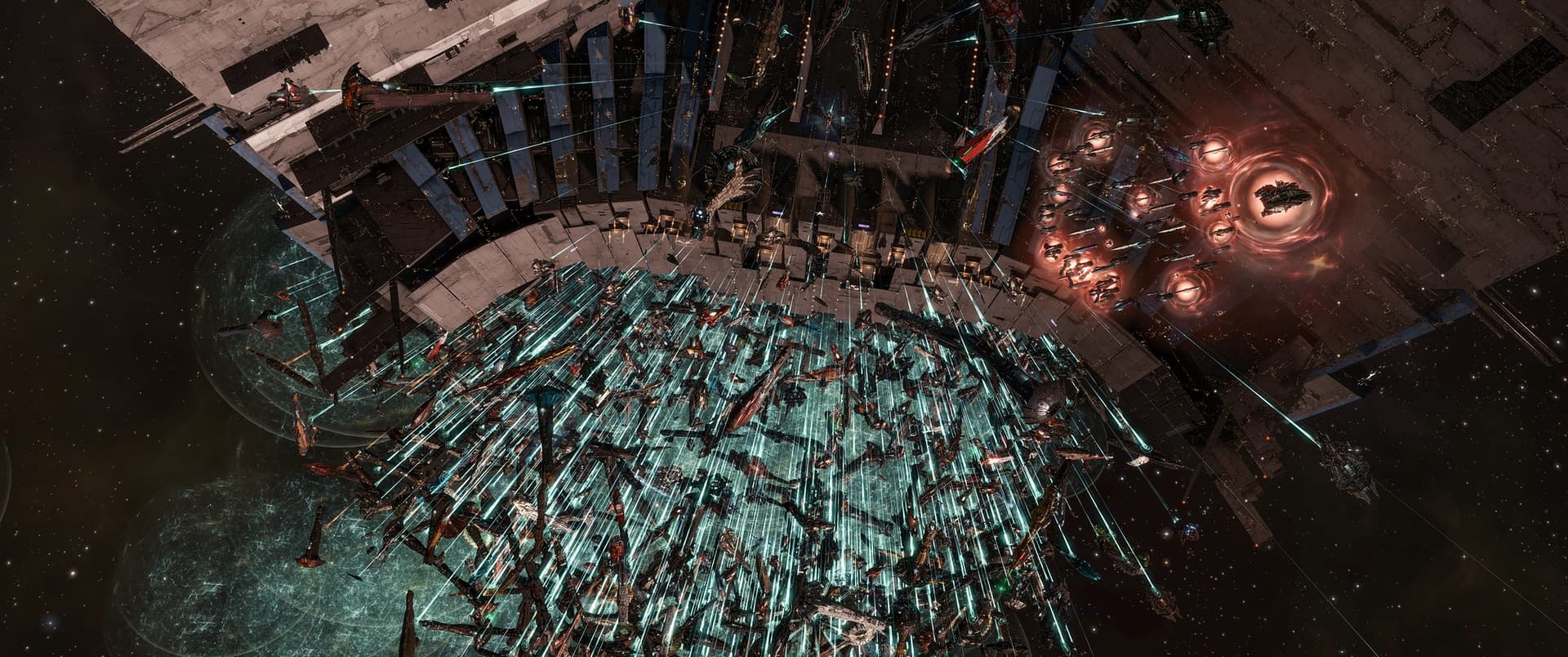

New players are advised to first focus on basic skills for navigation, piloting, and combat. Then they should discover their playstyle and find an appropriate guide for ships and gameplay they enjoy. There are countless guides online explaining which skills are best for EVE’s many official and unofficial career paths. We’ve included a few examples later in this guide. Those guides take the form of informal recommendations and formal plans:
EVE Online skill planners and skill plans
While recommended skill lists long predate the feature, in 2021, CCP Games introduced formalised skill plans to EVE, allowing for both the easy sharing of lists between players and for simulating the impacts of those lists without the need for skill books or SP commitment. Organised into specific objectives, skill plans guide players through different skill training priorities and help them to keep track of their progress. They can be general or niche. You might choose a skill plan to increase your mining efficiency or to effectively pilot a specific ship.
“Skill plans are essentially roadmaps to follow, allowing you to evolve the best skills for the gameplay that suits you.” Yan
EVE Academy offers in-game-accessible certified skill plans for each of the empires and official career paths. Players can also create up to ten personal skill plans. You can find plenty of third-party tools that offer similar, unofficial services. Check out CCP’s Skill Plan support article for a detailed breakdown of Skill Plans’ functionality.
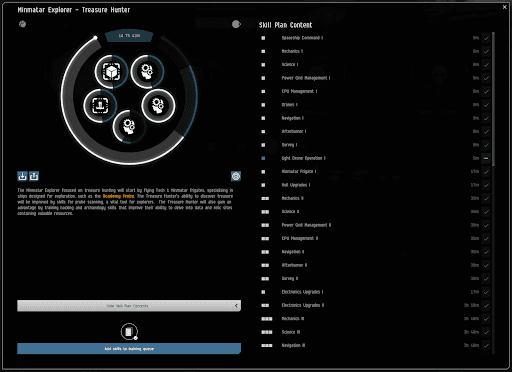
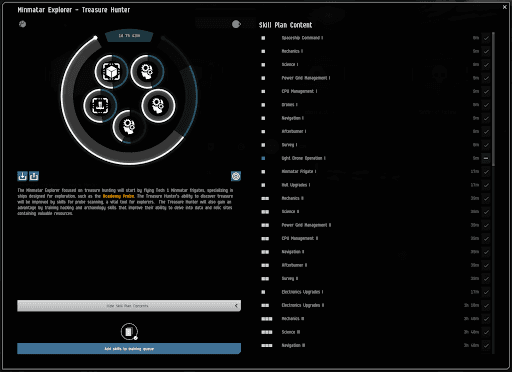
Alpha vs Omega skill training in EVE Online
Which skills you prioritise should be dependent on whether you’re an Alpha or Omega player. Alpha clones have a 172-skill ceiling, face limitations on maximum SP, and cannot train specific skills beyond some levels. Furthermore, Alpha players train skills more slowly and do not have access to Multiple Character Training (MCT), which allows multiple characters on the same account to train simultaneously. What does this mean in practice for Alpha and Omega players? We’ll pass to Luka for an explanation:
“Omegas cannot waste SP. They’re always better skilling something rather than nothing. Alphas, meanwhile, are limited to 5,000,000 SP gained through passive training - they can still skill up higher, but only through SP gained in events, dailies, and injectors. That means they should only train skills they need and should work towards specific goals.”
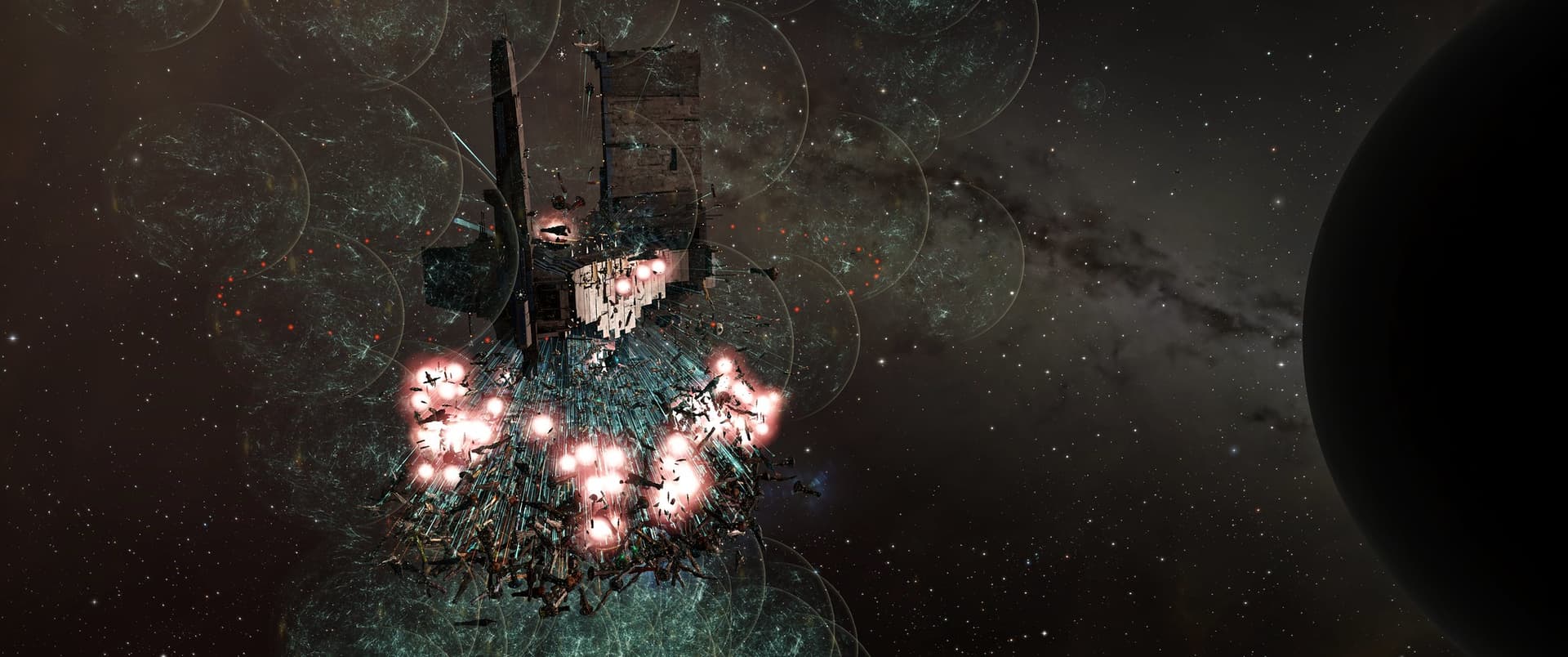

Which are the most important skills to train in EVE Online?
The short answer is: it depends. The question you should be asking is: which skills should I train in EVE Online? Here’s Sumfin7:
“It depends on what you want to do. If you want to be an industrialist, you’ll want ORE spaceship command skills, planetary industry skills, or resource processing skills. If you want to be a PvE pilot, you’ll want shields or armour (or both), relevant spaceship command skills, gunnery and/or missile skills.”
Looking to skill two birds with one stone? Support skills are important but often overlooked; they make a big difference to performance across many activities. Here’s Luka Zaharin:
“Do not forget the so-called support skills. They don’t give you access to new ships or modules, but they greatly increase the efficiency of the modules you can use at that moment. For example, skills like Warhead Upgrades and Armour Layering unlock nothing, but increase DPS and agility on every single ship that has missiles or armour plating equipped. Many newer players forget about support skills, but for reference, I want to share the anecdote of an Osprey Navy Issue flown by my newbie friend. He had around 87 DPS, but thanks to support skill levels my missile-focused main had over 200 DPS with the exact same fit. Few ships and fits are as extreme as this example, but it clearly shows how much ‘unnecessary’ skills can do.
“Also remember to level ship skills up. In the case of the above, the Caldari Cruiser skill gives a 25% boost to kinetic missile DPS, totalling 125% at Caldari Cruiser V.”
On Luka’s final point - levelling up skills - heed the 80/20 rule of EVE Online skill planning, which EVE University defines as follows:
“You will receive 80% of the benefit while taking 20% of the time by training only the first four levels of a skill.”
It’s a reliable rule of thumb due to the exponentially longer training time required for higher-level skill training. In other words, unless you’re committed to mastering a certain aspect of EVE, spread your skill training time across multiple lower-level skills. This is only a rule of thumb, and certain skills, like Drones and Navigation, are generally considered worth taking to V (level five).
Despite our non-committal answer of ‘it depends’, there are skills that are important no matter your playstyle. Introducing…
The ‘Magic 14’ EVE Online skills
“The Magic 14 is a list of basic skills that benefit any ship and playing preference. They’ll grant your ships additional fitting resources, more HP, more speed, and more agility. Until you know what to focus on, train these to avoid wasted training time.” - Luka Zaharin
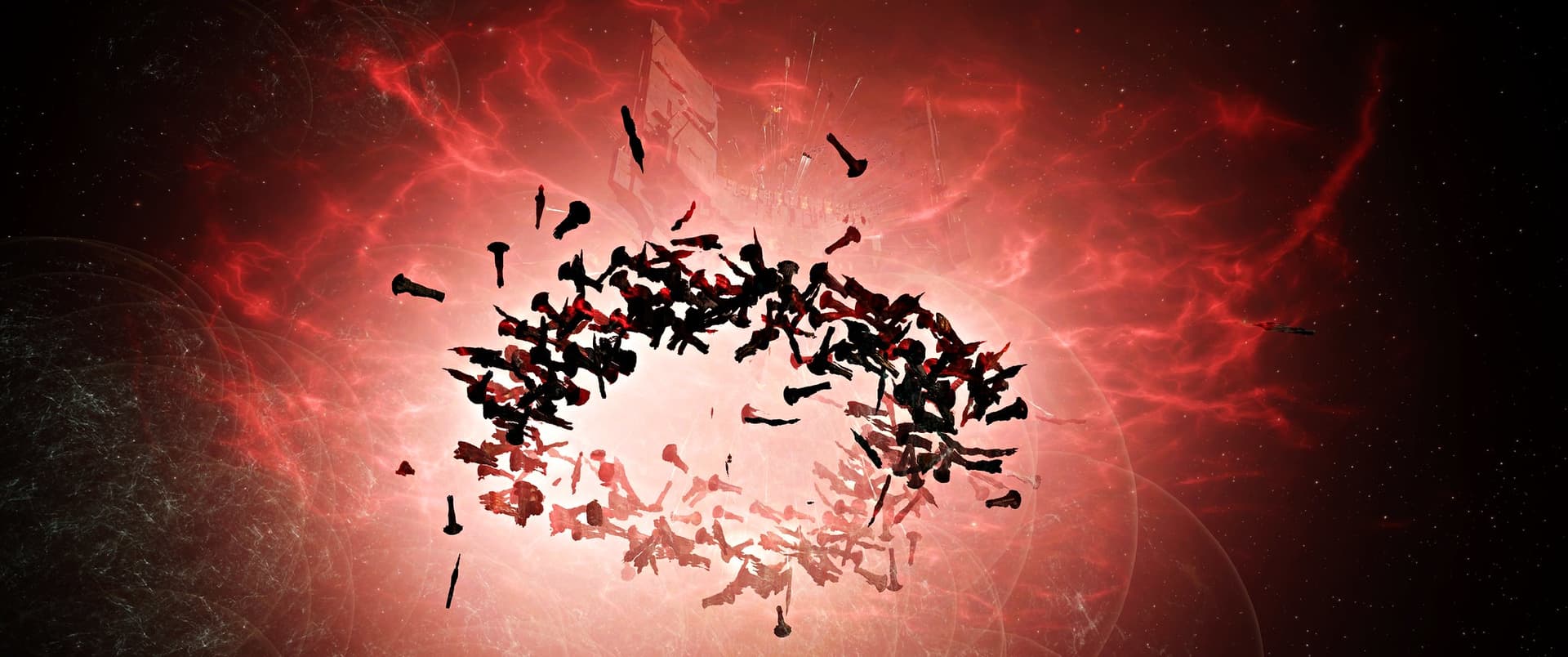

The Magic 14 skills are:
CPU Management
Power Grid Management
Capacitor Management
Capacitor Systems Operation
Mechanics
Hull Upgrades
Shield Management
Shield Operation
Long-Range Targeting
Signature Analysis
Navigation
Evasive Maneuvering
Warp Drive Operation
Spaceship Command
While a tried-and-tested formula, the Magic 14 is not exhaustive. FirestormGamingTeam describes the Magic 14 as: “Central for any new player to avoid confusion in the massive set of skills available. They’re a key stepping stone into the skills world of EVE Online.”
Alternatives to the Magic 14
It’s too long to include here, but Luka has provided a highly useful ‘copypasta’ alternative. There’s a lot of crossover with the Magic 14, but Luka has made some tweaks for “optimal development speed” and has also given recommendations for how far each of these omnibeneficial skills should be levelled up before re-prioritisation. Visit his reward submission to view the list.
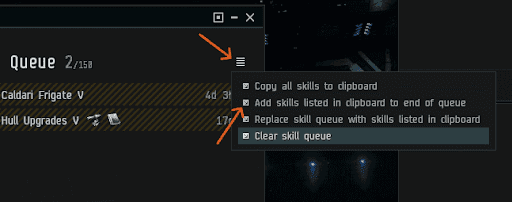
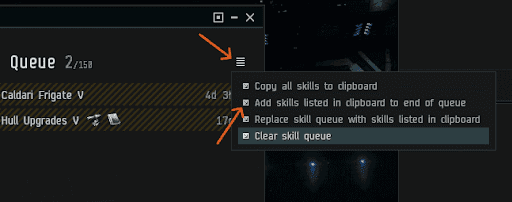
Now you know where to start, let’s explore some skill training priorities for a few different playstyles:
Drone combat skill priorities
First up, here’s a useful plan for drone combat skills, from greybill:
“Almost any large ship intended for combat can wield at least one flight of drones. That makes this skill set valuable in many scenarios. So here’s a list of the most important skills for improving their handling:
Drones: It’s essential to get this to V since it allows you to field an extra drone per level. Five drones are also the maximum most ships can simultaneously handle. It’s also a requirement for Tech 2 (T2) drones.
Light and Medium Drone Operation: Increases the damage by +5% per skill level. Both should be taken to IV ASAP, and V is required for T2, which should be made a mid-term goal. Any drone ship will use lights and mediums, and starting out they’re the bread and butter.
Drone Interfacing: Take this to IV as soon as possible and then get it up to V when you get the chance. It will give your drones +10% damage per level. That’s a lot!
Drone Navigation: This gives your drones +5% maximum velocity. Faster drones take less damage and reach their targets faster.
Drone Avionics: This increases the control range of your drones by 5,000 meters per skill level. This is helpful when kiting NPCs but not crucial when you’re just starting.
Drone Durability: Increases the overall tanking ability of your drones by 5% (shield, armour, and hull). Especially on faction drones combined with Guristas ships, this can make your drones pretty tank.
Amarr/Caldari/Gallente/Minmatar Drone Specialisation: Increases the damage by +2% for every drone requiring this skill and is needed for T2. This can be skilled late, once you’ve already levelled up your other skills.
Sentry Drone Interfacing: +5% Damage for sentry drones. This gets interesting when you can effectively fly a ship that already has bonuses for sentry drones like the Dominix or the Ishtar.”
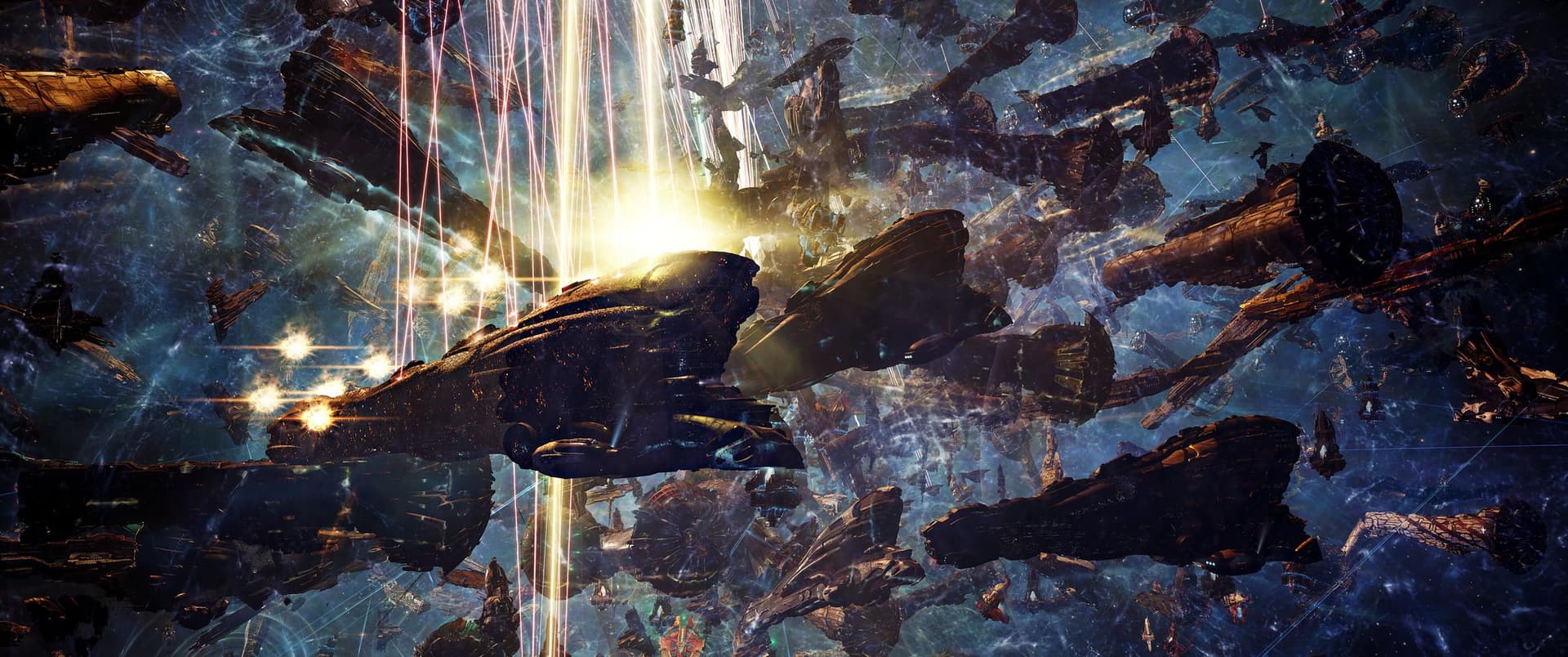

Planetary Industry (PI) skill priorities
We already noted that the Memory and Intelligence attributes tend to be important for industrialists. For those seeking passive income via PI, Schadsquatch is here to teach you the skill of the trade:
“Everyone needs to find a way to generate income. As EVE is a game about playing not only over a few hours, but months and potentially years, I recommend newbros find ways of generating ISK outside of game time. My favourite semi-active activity to generate income is PI.
“With a single LSI (large skill injector) or about 16 days of skill training, you’ll have an abundance of Skill Points with which to train a character into flying an Epithal with level IV PI skills (you don’t need Planetology or Advanced Planetology). I pull my PI every 4 days, and it takes me about 45 minutes to reset and do all of my PI across 12 characters, earning me approximately 140 million ISK per day. This technique will generate you sufficient semi-passive ISK to do just about anything you want to start your EVE career. The rest of your SP should be put into bettering your ISK-draining activities, like PvP and ship building.
“The best places to generate this income is Wormhole space or Nullsec, but you can do the same activity in Lowsec or Highsec for lower profitability, but easier access to markets.”
PvE combat skill priorities
If you’re looking to get into PvE, check out this list of essential skills from Nth Dimensional:
Alliance Tournament (AT) skill priorities
The examples above are great beginner-friendly skill planning priorities. But what does a plan for high-level PvPers look like? Here’s ShoMenao's rundown of key skills, organised by their skill categories:
“So you want to participate in the AT and need skills? Here's a quick rundown of key skills and groups of skills:
Armour: All subcapital skills excluding Remote Hull Repair Systems, get those compensations to V.
Drones: All drone skills excluding the fighters skills, mining skills, and Mutated Drone Specialisation (there’s some argument here given the lack of T2 damage drones in the rules that specs aren't needed).
Electronic systems: If you want to be a control pilot, then anything related to strength must be V and anything capacitor-related is secondary at V.
Engineering: Everything! Thermodynamics V is mandatory.
Fleet support: Take the command specialist skills, including Fleet Command, to V if you want to run any links.
Gunnery: This will be a ton of SP, but get all subcapital weaponry to minimum spec IV and start working on spec V's for weapon systems you'll commonly use.
Missiles: Same as gunnery.
Navigation: All non-jump related skills to V; Micro Jump Drive Operation can be important too.
Neural enhancement: Take Cybernetics to level II to allow X03 implants or to level V if you run links for mindlinks. Also take the jump clone skills to allow multiple clones.
Rigging: Everything other than Jury Rigging itself to V. Many fits require maxed rig skills and the drawback reductions are significant.
Shields: See armour.
Spaceship command: Make sure all of your T1 and T2 ship skills are maxed to V for any ships you'll be looking to fly.
Subsystems: Get all these to V.
Targeting: Everything to V except Advanced Target Management to III."
“In the end, you should always remember to enjoy your time in New Eden and ask for help in the various chats if you do not know what to do. EVE is better with friends and many people like to help new players out!” - Luka Zaharin
Let us know in the replies if there are any other skill priorities you’d like us to lay out. We hope you found this EVE skills guide helpful. Our thanks go to our community members and also to EVE University, which was used for supplementary research. Add a reply if you have any unanswered questions and our player experts should be able to help!
Some text has been edited for brevity, clarity, or spelling, punctuation, and grammar. You can find the original wording here. Image credit: Razorien on Flickr.
Created at . Page last updated at .

